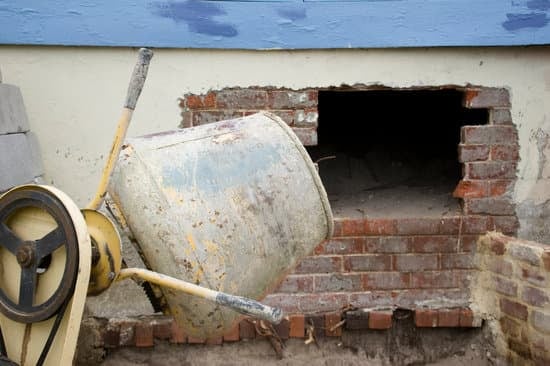Are you considering starting a home improvement business? The home improvement industry is booming, and many homeowners are looking for professional services to enhance the value and comfort of their homes. Whether you’re interested in remodeling, landscaping, or general contracting, there’s a growing demand for skilled professionals in this field. But what do you need to start a home improvement business?
Before launching your venture, it’s essential to understand the necessary skills and knowledge required for success in the industry. In this article, we’ll explore the education and training needed to excel in the home improvement business, as well as the importance of creating a solid business plan, understanding legal requirements, investing in the right tools and equipment, building a strong marketing presence, establishing relationships with suppliers and partners, managing finances, securing funding, and assembling a professional team.
By addressing these key areas, you can take the first steps towards launching your own successful home improvement business.
In the following sections, we’ll delve into each aspect of starting a home improvement business in more detail. From honing your skills to navigating legal considerations to building a strong brand presence and assembling a reliable team.
Whether you’re an experienced contractor looking to strike out on your own or someone passionate about home design and renovation seeking an entrepreneurial opportunity – this article will provide valuable insights into what it takes to thrive in the competitive world of home improvement. So let’s explore what it truly means to start up and run a successful home improvement business.
Education and Training
Starting a home improvement business requires a certain set of skills and knowledge to ensure success. It is important to have a solid foundation in construction, design, and project management. Here are some necessary education and training requirements to consider:
1. General Construction Knowledge: Having a strong understanding of construction principles, building codes, and safety regulations is essential. Consider taking courses or obtaining certifications in areas such as carpentry, electrical work, plumbing, and HVAC systems.
2. Design and Architecture: Familiarizing yourself with design concepts and architectural principles can set your business apart. Consider taking classes in interior design or architecture to enhance your knowledge in these areas.
3. Project Management: A successful home improvement business requires effective project management skills. Consider enrolling in project management courses to learn about planning, scheduling, budgeting, and resource management.
Investing in education and training will not only provide you with the necessary skills to run a successful home improvement business but also instill confidence in potential clients who are looking for professionals with expertise in the industry. Continuously improving your skills through workshops, seminars, and industry events will also keep you updated on the latest trends and best practices in home improvement.
Business Planning
Creating a solid business plan is crucial when starting a home improvement business. This document will serve as your roadmap, outlining the goals and objectives of your business, as well as the strategies you will implement to achieve them. A well-crafted business plan can also be instrumental in securing funding from investors or financial institutions.
In your business plan, you should include an executive summary, company description, market analysis, organization and management structure, product line or services, marketing and sales strategy, and financial projections. Each of these sections should be thoroughly researched and carefully planned to ensure that your home improvement business has a solid foundation for success.
It is important to regularly review and update your business plan as your home improvement business grows and evolves. This will help you stay focused on your goals and adapt to any changes in the market or industry trends. By continuously refining your business plan, you will be better prepared to navigate the challenges and opportunities that come with running a home improvement business.
| Section | Data |
|---|---|
| Importance of Business Plan | A crucial roadmap for the business |
| Components of Business Plan | Executive summary, company description, market analysis, etc. |
| Regular Review | To stay focused on goals and adapt to changes |
Legal Requirements
Starting a home improvement business comes with various legal requirements that need to be considered in order to operate legally and responsibly. Understanding permits and regulations is essential to avoid fines, penalties, or even being shut down. Here are the key points to consider when it comes to the legal side of starting a home improvement business:
- Research local regulations: Check the specific permits and licenses required for home improvement businesses in your area. Each state, city, or county may have different requirements, so it’s important to be well-informed.
- Obtain necessary licenses: Depending on the scope of your services, you may need general contractor licenses, trade-specific licenses (such as plumbing or electrical), or home improvement contractor licenses.
- Insurance coverage: It’s crucial to have liability insurance to protect your business from potential claims or lawsuits. Additionally, workers’ compensation insurance is typically required if you have employees.
Compliance with legal requirements not only ensures that your home improvement business operates within the boundaries of the law but also gives customers peace of mind knowing that they are dealing with a legitimate and responsible company. By taking the time to understand and fulfill these obligations, you set a strong foundation for your business’s long-term success.
Tools and Equipment
When starting a home improvement business, one of the most crucial aspects is investing in the right tools and equipment. Without the proper supplies, it will be challenging to provide quality service to your clients. Therefore, it is essential to carefully consider what tools and equipment are necessary for the services you plan to offer.
Assessing Your Service Offerings
Begin by assessing what specific services your home improvement business will offer. Whether it’s carpentry, plumbing, electrical work, or general contracting, each service will require different tools and equipment. For example, if you plan to offer electrical services, investing in high-quality voltage testers, wire strippers, and cable cutters may be necessary. On the other hand, if you’re focusing on carpentry, investing in power saws, drills, and sanders should be a priority.
Quality Over Quantity
While it may be tempting to purchase a wide variety of tools and equipment at once, it’s important to prioritize quality over quantity. Investing in high-quality tools may require a larger initial investment but will pay off in the long run with their durability and performance. It’s better to start with a few high-quality tools that are essential to your services and gradually expand your collection as your business grows.
Storage and Maintenance
Once you have acquired the necessary tools and equipment for your home improvement business, proper storage and maintenance are key to ensuring their longevity. Consider investing in storage solutions such as toolboxes or shelving units to keep everything organized and easily accessible. Additionally, regular maintenance of your tools is crucial for safety and efficiency. Create a schedule for cleaning, oiling, sharpening, or repairing your equipment to ensure they remain in optimal condition.
By carefully evaluating the specific needs of your home improvement business and investing in high-quality tools and equipment while maintaining them properly will set the foundation for providing exceptional service to your clients.
Marketing and Branding
Developing a Comprehensive Marketing Strategy
One of the key components of starting a successful home improvement business is developing a comprehensive marketing strategy. This involves building a strong online presence through a professional website and active social media profiles. Establishing an offline presence can also be crucial, whether it’s through traditional advertising methods or networking within the local community.
Utilizing Digital Marketing Tools
In today’s digital age, utilizing digital marketing tools is essential for reaching potential customers. This includes search engine optimization (SEO) to ensure that your website ranks well in online searches, as well as pay-per-click advertising and email marketing campaigns. Engaging with customers through online content such as blogs, videos, and social media posts can also help build brand awareness.
Creating a Strong Brand Identity
Building a strong brand identity is important for differentiating your home improvement business from competitors. This involves carefully choosing branding elements such as logos, colors, and taglines that reflect the values and goals of your company. Consistency across all marketing materials, both online and offline, helps establish brand recognition among consumers.
By focusing on marketing and branding efforts to build a strong online and offline presence, you can effectively reach your target audience and establish your home improvement business as a reputable and trusted choice in the industry. These strategies can lay the groundwork for long-term success in this competitive market.
Finding Suppliers and Partners
Establishing strong relationships with suppliers and partners is an essential aspect of running a successful home improvement business. Having reliable suppliers for materials and equipment is crucial to the efficiency and quality of your projects, while having strong partnerships within the industry can open up opportunities for collaboration and growth.
When looking for suppliers, it’s important to consider factors such as product quality, pricing, reliability, and customer service. Researching different suppliers and comparing their offerings can help you make informed decisions about who to partner with. Building long-term relationships with suppliers based on trust and communication can lead to more favorable terms and discounts over time.
In addition to suppliers, seeking out partnerships within the industry can be beneficial for networking, mentorship, and expanding your business. Building connections with other professionals such as contractors, designers, real estate agents, or home builders can lead to referrals and collaborative projects. Attending industry events, joining trade associations, and participating in online forums are great ways to connect with potential partners.
| Aspect | Consideration |
|---|---|
| Suppliers | Product quality, pricing, reliability, customer service |
| Partnerships | Networking, mentorship, referrals |
Financial Considerations
Managing the finances of a home improvement business is crucial to its success. As with any business, it is important to have a solid understanding of the financial aspects, including budgeting, cash flow management, and accounting. It is essential to create a detailed financial plan that outlines the costs of starting and running the business, as well as projected revenue and profit margins. This plan will serve as a roadmap for your business’s financial success.
Securing funding for a home improvement business can be challenging but is necessary to cover startup costs and ongoing expenses. There are various options for financing, such as small business loans, lines of credit, or investment from partners or investors. It’s important to explore these options thoroughly and choose the best fit for your business. Additionally, maintaining a good credit history and building relationships with financial institutions can make it easier to secure funding when needed.
In addition to managing finances and securing funding, it is essential to set up proper accounting systems and procedures. This includes keeping accurate records of expenses, income, and taxes. Hiring an experienced accountant or bookkeeper can help ensure that your business remains financially organized and compliant with regulations. By carefully managing finances and seeking funding when necessary, you can lay a strong foundation for your home improvement business’s long-term success.
Building a Professional Team
Once your home improvement business is up and running, you’ll need to start building a professional team to help you deliver exceptional service to your clients. Whether you focus on remodeling, landscaping, or home repair, having a reliable and skilled team is essential for the success of your business.
When it comes to hiring employees for your home improvement business, look for individuals with experience in the industry who are also customer-focused. Whether it’s carpenters, electricians, plumbers, or general contractors, having a team with diverse and specialized skills will allow you to take on a variety of projects. Additionally, consider implementing a thorough training program to ensure that all employees are equipped with the necessary knowledge and safety protocols required for their specific roles.
In addition to hiring skilled professionals, creating a positive work environment is crucial for retaining top talent. Offering competitive wages, benefits, and opportunities for career advancement can help attract qualified candidates and motivate existing employees to stay committed to your business. Remember that investing in the wellbeing and growth of your team members will ultimately contribute to the overall success of your home improvement business.
Conclusion
In conclusion, starting a home improvement business requires careful consideration and planning. From acquiring the necessary education and training to understanding the legal requirements, investing in the right tools and equipment, and building a strong marketing and branding strategy, there are many important factors to take into account. However, with dedication, hard work, and a solid business plan in place, aspiring entrepreneurs can certainly take the first steps towards launching a successful home improvement business.
Developing a professional team and establishing relationships with suppliers and partners are also crucial aspects of starting a home improvement business. By surrounding yourself with knowledgeable and skilled employees, as well as fostering strong connections within the industry, you can create a solid foundation for your business to thrive. Additionally, managing finances effectively and securing funding when needed are essential for long-term success.
Finally, it’s important to remember that embarking on this entrepreneurial journey will undoubtedly come with its challenges. However, with perseverance and a commitment to delivering high-quality service to your customers, you can position yourself for growth and profitability in the ever-growing home improvement industry. So if you have the passion and determination to succeed in this field, then taking these initial steps can lead you on a fulfilling and rewarding path as a home improvement business owner.
Frequently Asked Questions
Is Home Improvement a Good Business?
Home improvement can be a good business for those with the right skills, knowledge, and determination. There is a constant demand for home renovation and repair services, especially as homeowners look to increase the value of their properties.
It’s important for businesses in this industry to provide high-quality work, excellent customer service, and stay updated on the latest trends and technologies.
How to Start a Business Renovating Houses?
Starting a business renovating houses requires careful planning and attention to detail. First, it’s essential to acquire the necessary skills and knowledge by taking courses or working under an experienced contractor.
Then, it’s important to create a solid business plan that includes funding, target market analysis, marketing strategies, and a clear outline of services offered. Building a network of reliable suppliers and subcontractors is also crucial for success in this field.
How to Make Money in the Home Improvement Business?
Making money in the home improvement business involves providing great value to customers while managing costs effectively. This means offering competitive pricing without sacrificing quality of work or materials used.
Additionally, diversifying services beyond just renovation can help generate consistent income streams – such as offering maintenance contracts or handyman services. Finally, building a strong reputation through word-of-mouth referrals and positive online reviews can lead to continued success in the industry.

I’m thrilled to have you here as a part of the Remodeling Top community. This is where my journey as an architect and remodeling enthusiast intersects with your passion for transforming houses into dream homes.





